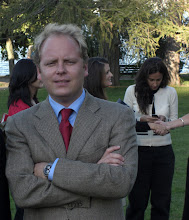King Alcohol
In vino veritas. And maybe that is true.
Drinking is very acceptable within the expat community. And in this the expat community meets the local community. Because it is widely accepted within the local community too.
Hard liquor is cultural heritage in the former Yugoslavia. I knew this already, but the more books I read by authors from the former Yugoslavia, the better I realize it. In most books that I read there is mentioning of consuming of vast quantities of alcohol, just for the sake of consuming it. The book that I am currently reading is a great example of that- in almost every chapter of the book the main character gets drunk. And strangely enough it is the least disturbing about the book. Anyone who wants to understand the ludacrisy of a war should read this book. By reading it you will understand that you will never understand it, just because it is so ridiculous. An interesting Catch 22. Next to books like 'The death of Yugoslavia' by Laura Silber and Allan Little, it is a 'must-read' for anyone who wants to know something about the dissolution of Yugoslavia.
Anyway, back to the drinks. Hard liquor is cultural heritage, and cherished as such. Therefore it is made at home, and for sale on every market. I never realized that drinks can be made out of so many different products: you have Travarica, made of grass, you have Medenica, made of honey, there is Slivovica, made of plums, there is Loza, made of grapes, there is Kruska, made of pears, there is Orahavaca, made of walnuts, there are drinks made of apple, cherry and probably strawberry too. All of the drinks fall under the name Rakija. And all have the same effect. They warm you in winter, and they warm you up in the morning. every time I fly home, Nenad the Neighbor comes out of his house and gives me some Loza, because according to him it makes traveling easier.
In New York someone told me that alcoholism is the professional deformation of the expat. Probably true. Bosnia accomodates the expat in that matter, that is for sure.....
Drinking is very acceptable within the expat community. And in this the expat community meets the local community. Because it is widely accepted within the local community too.
Hard liquor is cultural heritage in the former Yugoslavia. I knew this already, but the more books I read by authors from the former Yugoslavia, the better I realize it. In most books that I read there is mentioning of consuming of vast quantities of alcohol, just for the sake of consuming it. The book that I am currently reading is a great example of that- in almost every chapter of the book the main character gets drunk. And strangely enough it is the least disturbing about the book. Anyone who wants to understand the ludacrisy of a war should read this book. By reading it you will understand that you will never understand it, just because it is so ridiculous. An interesting Catch 22. Next to books like 'The death of Yugoslavia' by Laura Silber and Allan Little, it is a 'must-read' for anyone who wants to know something about the dissolution of Yugoslavia.
Anyway, back to the drinks. Hard liquor is cultural heritage, and cherished as such. Therefore it is made at home, and for sale on every market. I never realized that drinks can be made out of so many different products: you have Travarica, made of grass, you have Medenica, made of honey, there is Slivovica, made of plums, there is Loza, made of grapes, there is Kruska, made of pears, there is Orahavaca, made of walnuts, there are drinks made of apple, cherry and probably strawberry too. All of the drinks fall under the name Rakija. And all have the same effect. They warm you in winter, and they warm you up in the morning. every time I fly home, Nenad the Neighbor comes out of his house and gives me some Loza, because according to him it makes traveling easier.
In New York someone told me that alcoholism is the professional deformation of the expat. Probably true. Bosnia accomodates the expat in that matter, that is for sure.....
Labels: Rakija


0 Comments:
Post a Comment
<< Home